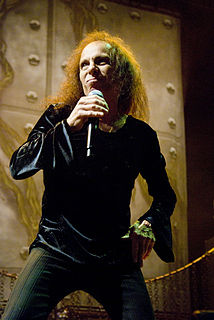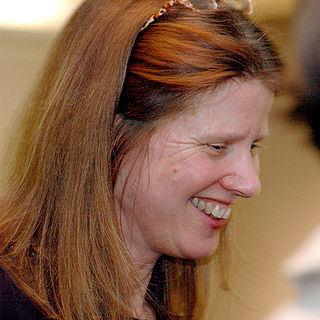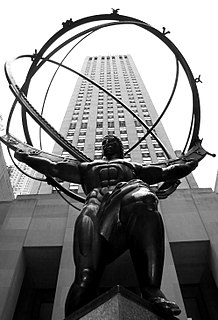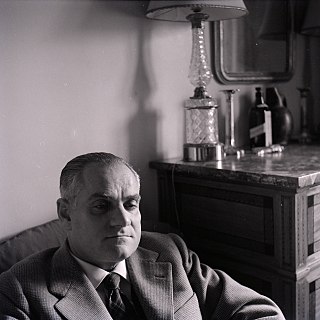A Quote by Ronnie James Dio
We'll know for the first time If we're evil or divine We're the last in line.
Related Quotes
For the first time in history, the rational and the good are fully armed in the battle against evil. Here we finally find the answer to our paradox; now we can understand the nature of the social power held by evil. Ultimately, the evil, the irrational, truly has no power. The evil men’s control of morality is transient; it lives on borrowed time made possible only by the errors of the good. In time, as more honest men grasp the truth, evil’s stranglehold will be easily broken.
The Book, this Holy Book, on every line,
Mark'd with the seal of high divinity,
On every leaf bedew'd with drops of love
Divine, and with the eternal heraldry
And signature of God Almighty stamp'd
From first to last; this ray of sacred light,
This lamp, from off the everlasting throne,
Mercy took down, and in the night of time
Stood, casting on the dark her gracious bow;
And evermore beseeching men With tears
And earnest sighs, to read, believe and live.
[Religion] attacks us in our deepest integrity - the core of our self-respect. Religion says that we would not know right from wrong, we would not know an evil, wicked act from a decent human act without divine permission, without divine authority or without, even worse, either the fear of a divine punishment or the hope of a divine reward. It strips us of the right to make our own determination, as all humans always have, about what is and what is not a right human action.
Since ancient times, the philosophers' secret has always been this: we know that God does not exist, or, at least, if he does, he's utterly indifferent to our individual affairs--but we can't let the rabble know that; it's the fear of God, the threat of divine punishment and the promise of divine reward, that keeps in line those too unsophisticated to work out questions of morality on their own.
With Hairspray, we had a great experience. I always think of the last time I saw Divine: He was in the last booth in the back of the Odeon. Now every time I go in there, I look at that table. It was a wonderful night.Hairspray had been out a week; it was a hit. If I had to pick a night that was going to be the last night.
What happens if you are the last (the very, very last) of your species, and you die - and humans notice? We live, increasingly, at a time when extinctions are recorded, remembered, and the last animal (or plant) in its line, by virtue of its being last, becomes a kind of celebrity. Its finality becomes a thing to honor.
When one has once accepted and absorbed Evil, it no longer demands the unfitness of the means. The ulterior motives with which youabsorb and assimilate Evil are not your own but those of Evil.... Evil is whatever distracts. Evil knows of the Good, but Good does not know of Evil. Knowledge of oneself is something only Evil has. One means that Evil has is the dialogue.... One cannot pay Evil in installments--and one always keeps on trying to.




































